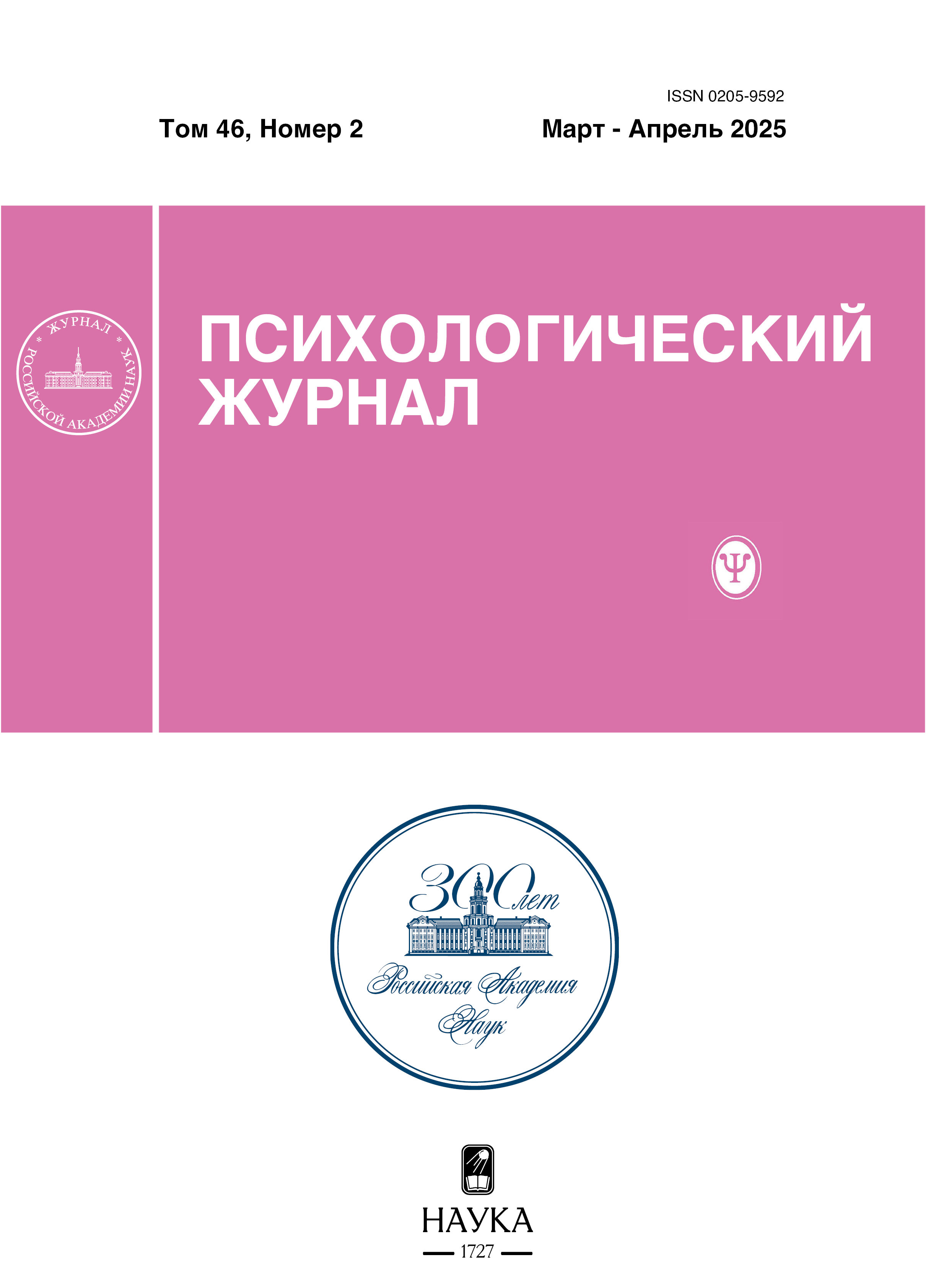Individual-typical approach in domestic psychology (on the example of B. G. Ananiev’s ideas about individuality)
- Autores: Mironenko I.A.1
-
Afiliações:
- St. Petersburg State University
- Edição: Volume 46, Nº 2 (2025)
- Páginas: 116-121
- Seção: Discussion
- URL: https://cardiosomatics.ru/0205-9592/article/view/683556
- DOI: https://doi.org/10.31857/S0205959225020128
- ID: 683556
Citar
Texto integral
Resumo
This article is a response to the monograph “Scientific approaches in modern Russian psychology” and the article by the monograph editors with an invitation for discussion. As a contribution to the discussion of approaches in modern Russian psychology, it is proposed to replenish the “landscape” of approaches assessed in the monograph with the individual-typical approach, presented in Russian psychology by the works of B.G. Ananiev, V.S. Merlin, E.A. Klimov and others. From the point of view of the author of this article, to assign this approach as complex and energy-informational is not enough to define the essence and peculiarity of this approach, and the concept of holistic individuality, proposed as the core one in the classification of approaches also needs a clarification in relation to this approach. The individual-typical approach is based on the interpretation of the biosocial problem, specific to the Russian psychological tradition, implying considering the culture, “the social”, as opposed to the biology and even partially liberating the human from the power of the laws of nature. The individual-typical approach is a procreation of the paradigm that was developing in the USSR, based on the cultural-historical theory, the activity approach inextricably linked with it, and the “subjekt” approach of S.L. Rubinstein, merged into an integrated system. In the light of considering the human as a source of “self-causing and self-determination” of changes of the world, individuality becomes an essential characteristic of human development, distinguishing the phenomenon of human from other phenomena of the being. This vision was realized in the individual-typical approach, in its most elaborated form presented by the ideas of B.G. Ananiev. The idea of holistic individuality as interpreted by Ananyev is by no means a declaration of the value of each person in his/her uniqueness. Here we find the possibility of a special type of individual development, in fact, a self-creation of a person, including changes in his biology in the holistic structure of individuality, provided that development is generated by a strong motivational complex. The relevance of the idea of individualization of ontogenesis in the context of global challenges of contemporary world development is substantiated.
Texto integral
Sobre autores
I. Mironenko
St. Petersburg State University
Autor responsável pela correspondência
Email: mironenko.irina1@gmail.com
Doctor of Psychology, Professor of the Faculty of Psychology
Rússia, 199034, St. Petersburg, Universitetskaya nab., 7-9Bibliografia
- Anan’ev B.G. Chelovek kak predmet poznanija. Leningrad: LGU, 1969. (In Russian)
- Vygotskij L.S. Psihologija razvitija cheloveka. Moscow: Izd-vo Smysl; Jeksmo, 2005. (In Russian)
- Golovej L.A., Zhuravlev A.L., Tarabrina N.V. B.G. Anan’ev i mezhdisciplinarnye issledovanija v psihologii (K 110-letiju so dnja rozhdenija). Psikhologicheskii zhurnal. 2017. V. 38. № 5. P. 108–117. (In Russian)
- Gol’cman A. Reorganizacija cheloveka. Leningrad: Gosizdat, 1925. (In Russian)
- Zhuravlev A.L., Mironenko I.A., Jurevich A.V. Psihologicheskaja nauka v global’nom mire: vyzovy i perspektivy. Psikhologicheskii zhurnal. 2018. V. 39. № 2. P. 58–71. (In Russian)
- Zhuravlev A.L., Sergienko E.A. Sovremennye podhody v otechestvennoj psihologii: edinstvo v raznoobrazii. Psikhologicheskii zhurnal. 2024. V. 45. № 4. P. 113–127. (In Russian)
- Klimov E.A. Individual’nyj stil’ dejatel’nosti v zavisimosti ot tipologicheskih svojstv nervnoj sistemy. K psihologicheskim osnovam truda, uchenija, sporta. Kazan’: Izd-vo KazGU, 1969. (In Russian)
- Lomov B.F. Metodologicheskie i teoreticheskie problemy psihologii. Ed. Ju.M. Zabrodin, E.V. Shorohova. Moscow: Nauka, 1984. (In Russian)
- Malofeev N.N. Ot ravnyh prav k ravnym vozmozhnostjam, ot special’noj shkoly k inkljuzii. Izvestija RGPU im. A.I. Gercena. 2018. № 19. P. 8–15. (In Russian)
- Mironenko I.A. Biosocial’naja problema i stanovlenie global’noj psihologii. Moscow: Izd-vo “Institut psihologii RAN”, 2019. (In Russian)
- Mironenko I.A., Zhuravlev A.L. Biosocial’naja problema v kontekste global’noj psihologicheskoj nauki: ob universal’nyh harakteristikah cheloveka. Psikhologicheskii zhurnal. 2019. V. 40. № 6. P. 87–98. (In Russian)
- Nauchnye podhody v sovremennoj otechestvennoj psihologii. Eds. A.L. Zhuravlev, E.A. Sergienko, G.A. Vilenskaja. Moscow: Izd-vo “Institut psihologii RAN”, 2023. (In Russian)
- Petrenko V.F. Konstruktivistskaja paradigma v psihologicheskoj nauke. Psikhologicheskii zhurnal. 2002. V. 23. № 3. P. 113–121. (In Russian)
- Psihologicheskaja nauka v Rossii XX stoletija: problemy teorii i istorii. Moscow: Izd-vo “Institut psihologii RAN”, 1997. (In Russian)
- Rubinshtejn S.L. O filosofskoj sisteme G. Kogena. Istoriko-filosofskij ezhegodnik’92. Moscow, 1994. P. 247–258. (In Russian)
- Rubinshtejn S.L. Princip tvorcheskoj samodejatel’nosti. Voprosy psihologii. 1986. № 4. P. 101–108. (In Russian)
- Sergienko E.A. Mezhparadigmal’nye mosty. Psihologicheskie issledovanija. 2016. V. 9. № 48. P. 4. URL: http:/psystudy.ru (Data obrashhenija: 17.12.2024). (In Russian)
- Jung K.G. Psihologicheskie tipy. Saint-Petersburg: Juventa; Moscow: Progress-Univers, 1995. (In Russian)
Arquivos suplementares










